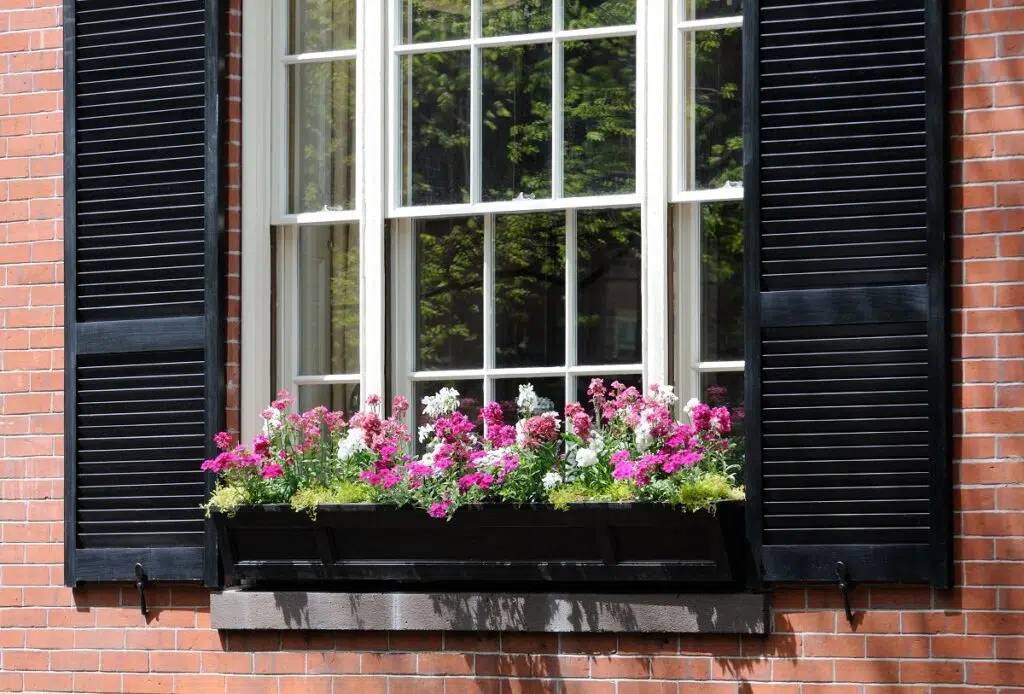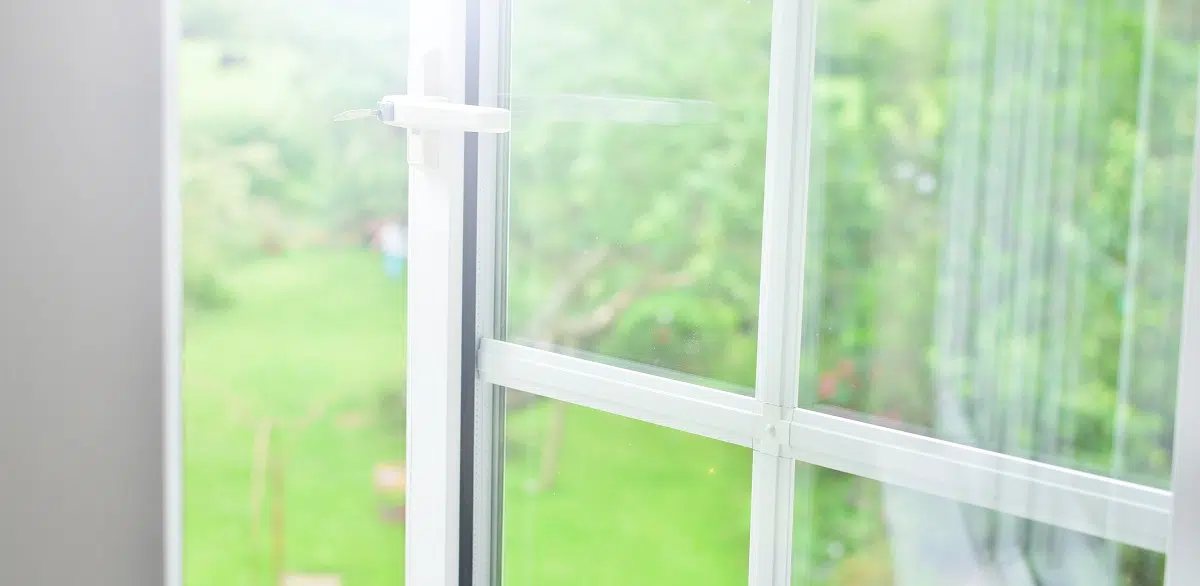When it comes to choosing the right windows for your home, you have a lot of options. Two popular types are casement windows and sash windows. But which one is better? In this comprehensive guide, we’ll look at both types of windows and compare their advantages and disadvantages so you can make an informed decision about which one is best for your home. We’ll cover topics like cost, energy efficiency, security, maintenance requirements, and more. Read on to learn all about casement windows vs sash windows!
Quick Links
- Overview of Casement Windows
- Overview of Sash Windows
- Pros and Cons of Casement Windows
- Pros and Cons of Sash Windows
- Cost Comparison between Casement and Sash Windows
- Energy Efficiency Comparison between Casement and Sash Windows
- Maintenance Requirements for Casement and Sash Windows
- Aesthetics Comparison between Casement and Sash Windows
- Noise Reduction Capabilities for Casement and Sash Windows
- Security Considerations for Casement and Sash Windows
- Which Window Type is Best?
Overview of Casement Windows
Casement windows are a great choice for homeowners looking to improve the look and feel of their home. They offer a classic, timeless design that can fit into almost any style of home. Casement windows are hinged on one side and open outward, allowing for maximum ventilation and natural light to enter your home. They also provide superior insulation from outside temperatures and sound, making them an ideal choice for energy efficiency. Casement windows come in a variety of materials such as wood, aluminum, uPVC, fiberglass, and composite materials so you can choose the perfect option for your home’s style and budget.
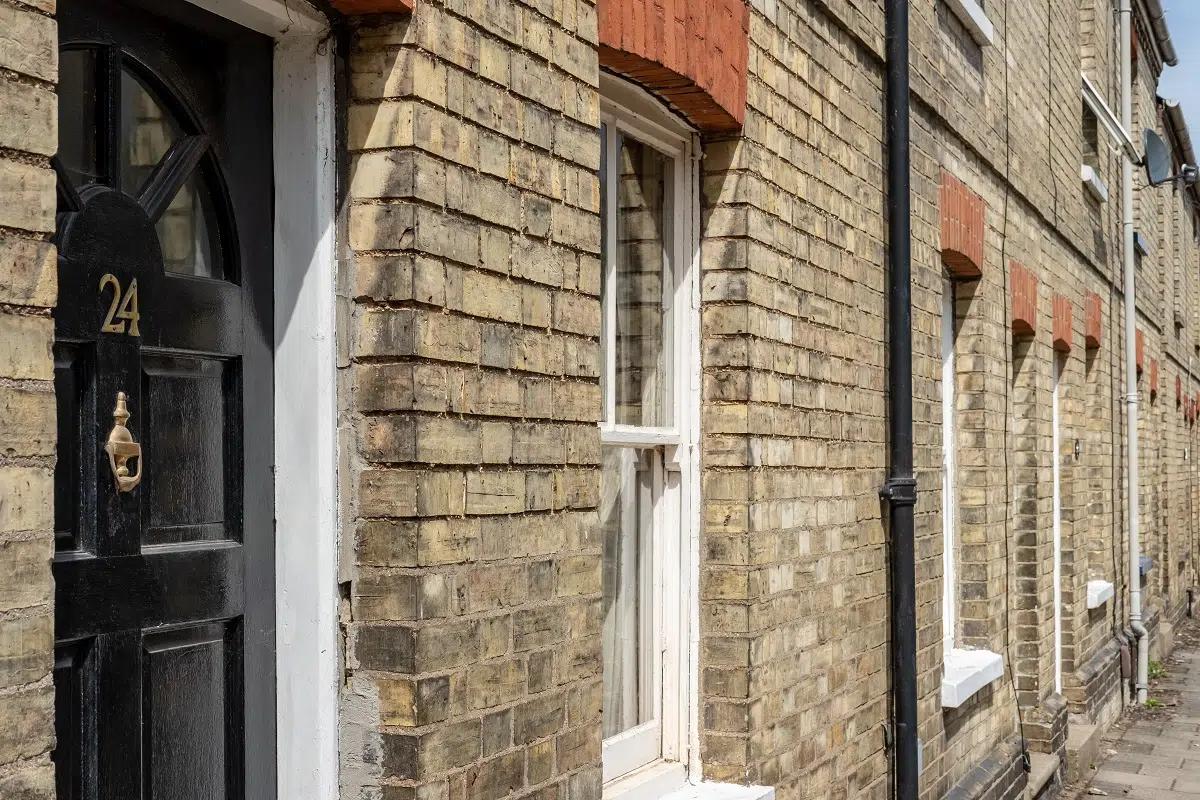
Overview of Sash Windows
Sash windows are a classic window style that have been around for centuries. They feature two frames, one sliding up and down and the other sliding side to side. This allows you to open them in various ways, providing good ventilation and natural light. Sash windows are often made of wood, but can also be made from other materials such as uPVC or aluminum.
The traditional look of sash windows makes them popular in historic homes, but they can also be used in modern homes as well.
Pros and Cons of Casement Windows
Casement windows are a popular choice for homeowners looking to add style and functionality to their home. They offer many advantages, but there are also some drawbacks that should be considered before making a decision. Let’s take a look at the pros and cons of casement windows.
Pros:
- Casement windows open outward from the side, allowing for more ventilation than other window types. This is great if you live in an area with hot summers or need extra air circulation in your home.
- The opening mechanism on casement windows allows for easy cleaning since you can reach both sides of the glass from inside the house.
- Casement windows can be customised with different materials, styles, and colours so they can fit any décor or design scheme.
- Since they open outwardly, they provide added security compared to other window types as it’s harder to force them open from outside.
Cons:
- Because they open outwardly, casement windows may not be ideal for small spaces where there isn’t enough room for them to swing outwards without hitting something else in the room.
- Depending on how big your window is, it may require two hands to open it which can be inconvenient if you only have one free hand available when trying to open it up quickly.
- They also tend to be more expensive than other types of windows due to their unique design and hardware components required for installation and operation.
Pros and Cons of Sash Windows
Sash windows have been around for centuries and are still a popular choice in many homes. They are classic and elegant, but they also come with some pros and cons that you should consider before making your decision.
Pros:
- Sash windows can be opened at the top or bottom, allowing for better ventilation and airflow throughout your home.
- Sash windows provide an aesthetically pleasing look to any room, as they feature classic lines and details.
- Sash windows can be opened from the inside or outside of the home, providing extra security when closed.
- The sashes on sash windows slide easily, making them easy to open and close.
Cons:
- Sash windows require regular maintenance in order to keep them working properly. This includes lubricating the tracks, tightening loose screws, replacing broken cords, etc.
- If not properly maintained, sash windows may become difficult to open or close due to sticking or warping of the wood frame over time.
- Due to their design, sash windows tend to be more expensive than other types of window styles.
Cost Comparison between Casement and Sash Windows
When it comes to cost comparison between casement and sash windows, it really depends on the type of window you choose. Casement windows are typically more expensive than sash windows due to their design and complexity. Casement windows also require additional installation labour costs, whereas sash windows can often be installed by a homeowner with minimal effort.
However, if you’re looking for energy efficiency, then casement windows may be the better option. Casement windows are designed to seal tightly when closed, which helps reduce drafts and increase energy efficiency in your home. Sash windows don’t offer this same level of insulation and airtightness, so they tend to be less efficient than casement models.
Ultimately, the cost difference between casement and sash windows will depend on the size of the window and the materials used in its construction. If you’re looking for a cost-effective option that offers good insulation properties, then casement might be your best bet. However, if you’re on a tight budget or just prefer the look of traditional sash windows, then these may be a better fit for your needs.
Energy Efficiency Comparison between Casement and Sash Windows
When it comes to energy efficiency, casement and sash windows both have their pros and cons. Casement windows are known for their tight seals, which helps keep out drafts and can help reduce energy costs. However, sash windows may be more efficient in some climates because they can be opened at the top or bottom to allow air flow without compromising insulation.
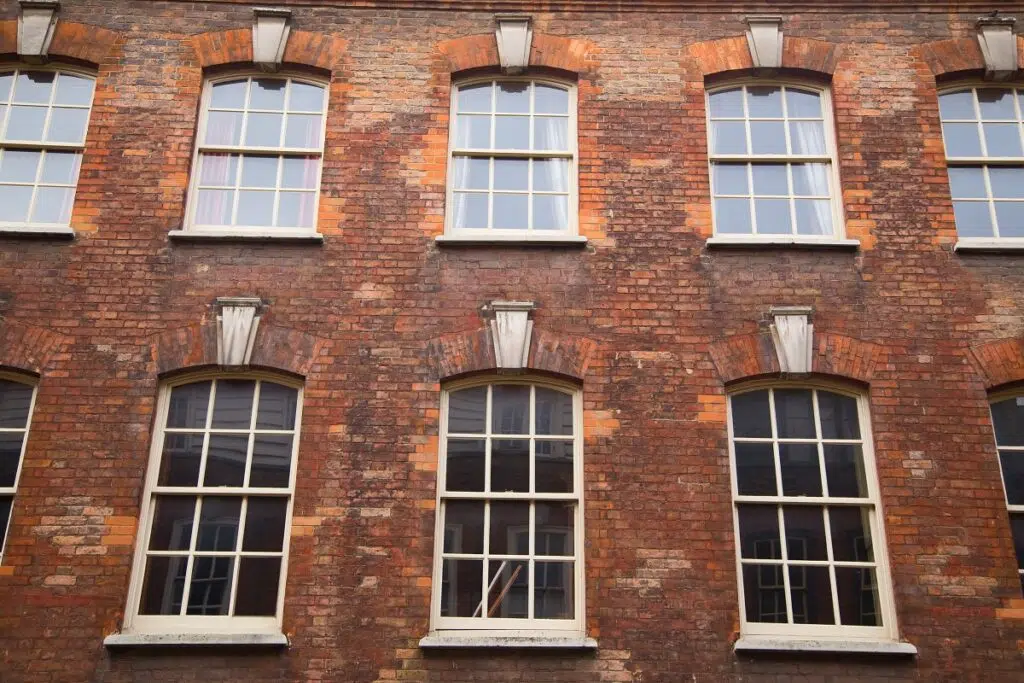
Finally, double-glazed glass is also an important factor in choosing between casement and sash windows as it provides additional insulation from outside temperatures. Double glazing also helps reduce noise levels from outside your home, making it a great choice for anyone looking for peace and quiet inside their home.
Maintenance Requirements for Casement and Sash Windows
When it comes to maintenance requirements, both casement and sash windows are relatively low-maintenance. Both types of windows need to be regularly wiped down with a damp cloth or sponge to remove any dirt or dust buildup.
In addition, you may want to check the window seals and weatherstripping periodically for any signs of wear or damage. If there is any damage, you should replace the seal or weatherstripping as soon as possible to ensure that your window remains airtight and energy efficient.
For sash windows, you may also need to lubricate the pulleys occasionally in order to keep them operating smoothly. If you have wooden sash windows, you should also check for any rot or decay and make sure that all joints remain secure.
Finally, both casement and sash windows require regular painting or staining in order to protect them from the elements. This should be done every few years in order to keep your windows looking their best and functioning properly.
Aesthetics Comparison between Casement and Sash Windows
When it comes to aesthetics, both casement and sash windows have a lot to offer. Casement windows are typically characterized by their large panes of glass, which can provide an unobstructed view of the outdoors. Additionally, they often come with decorative hardware such as handles or hinges that add a touch of elegance to any room. On the other hand, sash windows are generally more traditional in style, featuring two frames that slide up and down along tracks. They often feature intricate designs that add a classic look to any home.
In terms of colour options, both casement and sash windows can be found in a variety of shades and finishes. For example, you may find white vinyl casements or wood-framed sashes with painted finishes. Furthermore, some manufacturers offer custom colours so you can match your window treatments perfectly with your existing décor. Ultimately, when it comes to aesthetics, there is no clear winner between casement and sash windows – it all depends on your personal preference!
Noise Reduction Capabilities for Casement and Sash Windows
When it comes to noise reduction capabilities, casement and sash windows both offer excellent options. Casement windows are hinged on one side and open outward like a door. This design allows for a tight seal around the frame when closed, which helps reduce outside noise from entering your home. Sash windows, on the other hand, are two window panels that slide up and down in a frame. While they don’t create as tight of a seal as casement windows do, they can still help reduce noise levels inside your home by creating an extra layer of insulation between you and the outdoors.
Both types of windows come with different glazing options that can further enhance their soundproofing abilities. Double or triple glazed glass will provide better insulation against sound waves than single-glazed glass does. If you’re looking for maximum soundproofing benefits, then you should consider installing acoustic glazing which is specifically designed to absorb sound waves before they enter your home.
Security Considerations for Casement and Sash Windows
When it comes to security, both casement and sash windows have their advantages and disadvantages. Casement windows are generally more secure than sash windows because they are installed with a multi-point locking system that provides extra protection against intruders. The lock is usually located at the top of the window, making it difficult for an intruder to reach. Additionally, casement windows can be fitted with additional security features such as laminated glass or security bars for extra peace of mind.
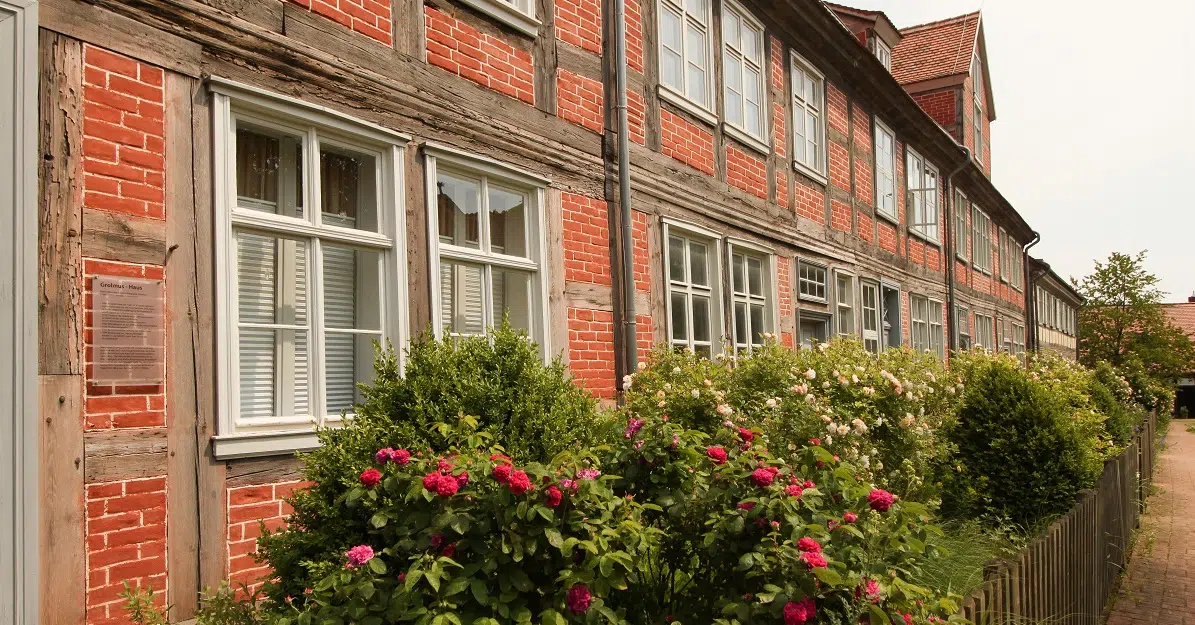
Ultimately, if you’re looking for maximum security then casement windows are probably your best bet – but if you’re looking for something more aesthetically pleasing then sash windows may be the better option.
Which Window Type is Best?
If you’re trying to decide between casement windows and sash windows, it can be difficult to determine which one is the best choice for your home. Both window types have their own unique advantages and disadvantages, so ultimately it comes down to personal preference.
Casement windows are great for ventilation, as they open outwards and provide a wide opening area. They are also relatively easy to clean from the inside, since you don’t need to reach outside of the window frame in order to do so. However, they may not be ideal if you live in an area with strong winds, as the outward-opening design makes them more susceptible to damage from high winds.
Sash windows offer a classic look that many homeowners prefer. They are also less prone to wind damage than casement windows since they slide up and down rather than opening outwards. On the other hand, sash windows can be harder to clean from the inside since you need to reach around or through the window frame in order to do so properly.
In conclusion, there is no definitive answer as to which type of window is better; it really depends on what factors are most important for your particular situation. If ventilation is key then casement windows may be a better option whereas if aesthetics is more important then sash windows might be preferable. Ultimately it comes down to personal preference!
